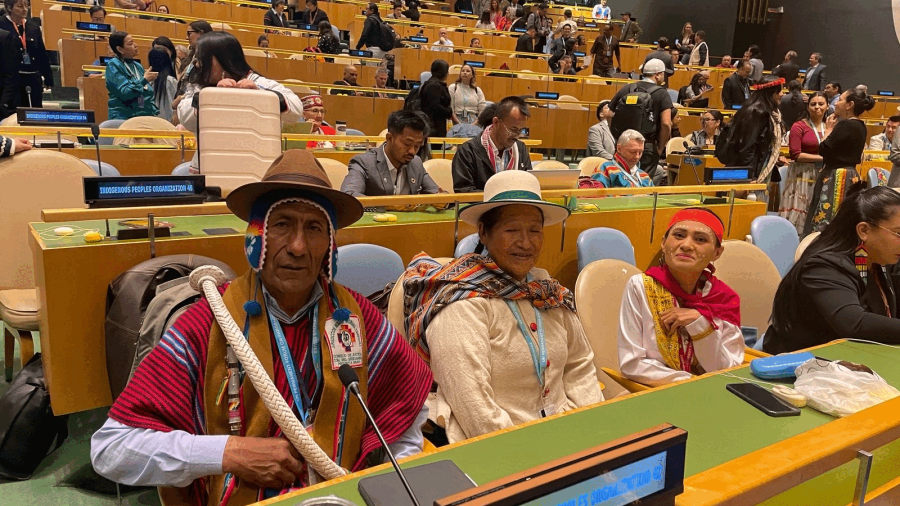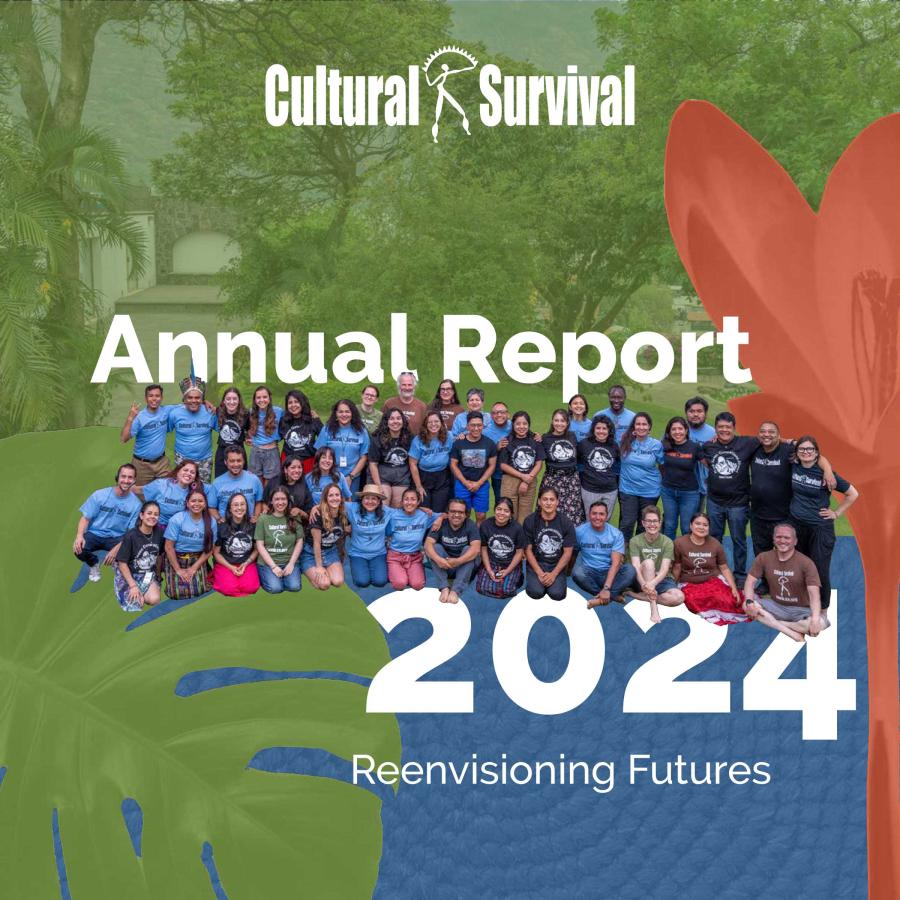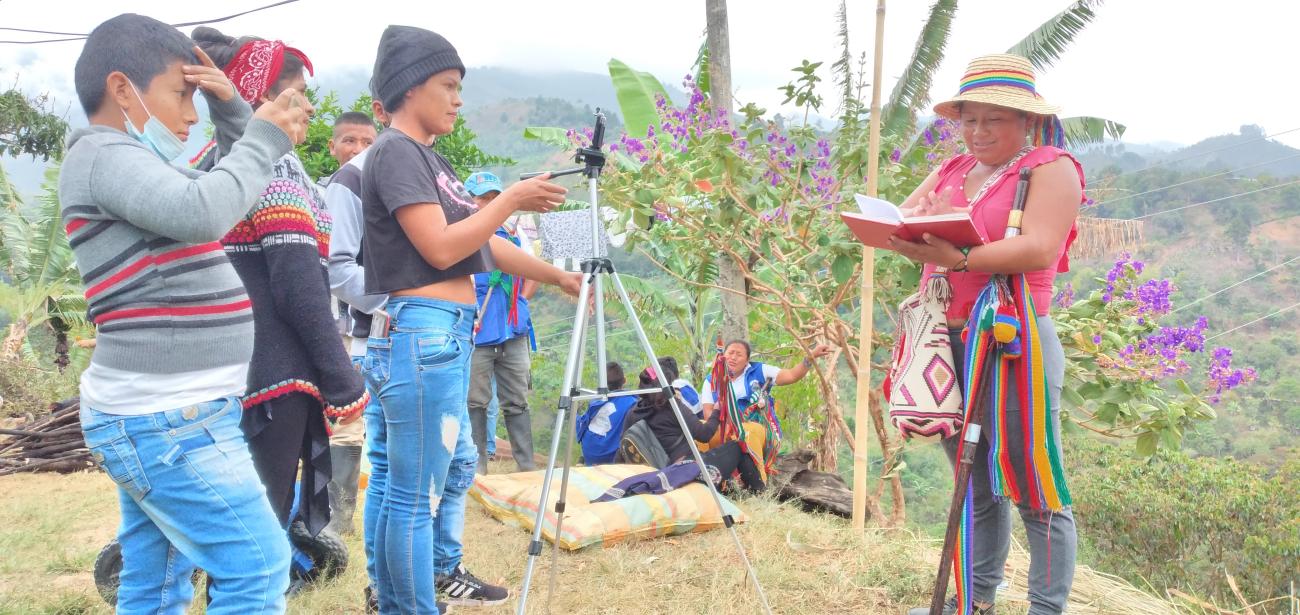
In the United States, March is Women's History Month. The official designation seeks to highlight the struggle of women in public life and in achieving gender equality. The UN established March 8 as International Women’s Day, which has become a day of vibrant social movements around the world such as collective marches led by and for women.
According to the International Labor Organization, Indigenous women account for 238.4 million of the 476.6 million Indigenous people in the world. Despite representing 50 percent of the population, inequality continues to be a major obstacle for Indigenous women who struggle every day for their dignity in political, social, economic, and cultural life.
Cultural Survival is committed to building more resilient communities by directly supporting Indigenous women's leadership. We will continue to promote their voices in accordance with their values and strive to support Indigenous women to be the decision makers and protagonists of their own stories and to assume the participatory roles they deserve and choose. Through our Capacity Building program, we aim to support Indigenous women's leadership, technical skills, decisions, struggles, and victories.
As part of our efforts, Cultural Survival’s Indigenous Youth Fellowship Project supports young women communicators, artisans, artists, and storytellers in their efforts to develop their skills, training, research, productions, and creations aimed at strengthening their cultural identity and leadership. We are firmly committed to reducing systemic inequalities and promoting the participation of women in their spaces and environments. We present below the work of two of our 2022 youth fellows.
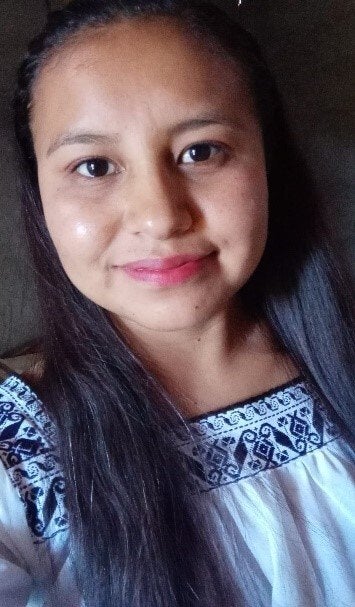
Alejandra Santiago (Hñahñu)
Alejandra is a young Indigenous woman from the community of Santiago de Anaya, Mexico, who has strengthened youth participation in her community through her radio project, “Mets'i.” Beyond being simply an informational exchange, Alejandra has achieved active participation of the youth in resistance and cultural promotion at the local level. With “Mets'i,” she offered young people the opportunity to share their artistic sound creations and experiences from the perspective of community communication.
As a young Hñahñu, Alejandra is committed to preserving her culture and identity. Her project was carried out in four stages: training in the Hñahñu language and the cosmovision of the Hñahñu people about the land, artistic creations with the youth, and the production of radio clips about the life of each participant.
Through these four stages, Alejandra coordinated a project that awakened the interest of the youth of her community about the ñhañhu culture and identity, in addition to generating strategic alliances with other collectives to reinforce their mission. Workshop topics included raising awareness of the Hñahñu language, raising awareness of life experiences regarding respect for Mother Earth, artistic creations of scripts, and the creation of short radio pieces on youth life stories, all of which highlighted cooperation as a key factor in community work. Alejandra said, "It is beneficial to have the support of other members of the community for a healthy coexistence and the constant and affirming communication between coordinators and mentors is indispensable."
Communication was facilitated in “Mets'i” through multimedia creation as well as through group consensus, which helped to develop dialogues based on mutual respect and empathy for the community. Commenting on what she learned from the project, Alejandra said, "I feel that leadership is the strongest thing; I had never been in charge before. It was a great personal challenge.” She believes that it is vital for the work to continue and to maintain the relationship established by the project between young people and the media.
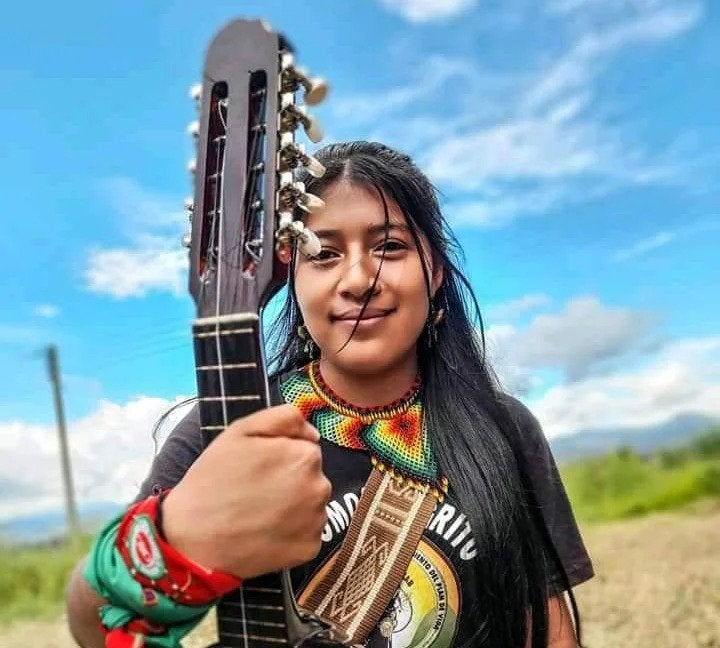
Jimena Musicue Casso (Nasa)
"Women are fundamental in the cosmovision and are the ones who preserve the values and the language. This project helped reaffirm my struggle for women and the territory and to not lose my conviction to fight," says Jimena Musicue Casso (Nasa), 18, who lives in the Cauca de Toribio area of Colombia. Jimena is part of Cultural Survival's 2022 scholarship group. She recently completed high school and is a member of the women's group, Pensamientos Hilando. She is also a member of the Nasa Women's movement, Produciendo Pensamientos, a nonprofit organization focused on promoting the economic autonomy and political participation of the women of Toribio.
The municipality of Toribio, Cauca, is nationally known for the negative impacts of the internal armed conflict in Colombia. According to police reports from this area, hundreds of incidents of harassment have taken place in the last 10-15 years. Civil organizations such as Proyecto Nasa cite more than 600 incidents dating back to the 1980s.
Jimena says that the history of violence in her territory is intrinsically related to women's bodies. She believes that in order to face the challenges caused by capitalism and patriarchy in her community, it is necessary to retake the principles of the Nasa cosmovision, which are part of the fundamental role of women in the community. “Men and women must walk together side by side, not one behind and not one in front, but together," she says.
Jimena's project focused on providing training to 15 people in the Toribio community. Workshop topics included technical communication tools, radio programming, and audiovisuals, through which the capacities of Indigenous communicators in the women's movement were strengthened to make their struggles and resistance visible through radio and audiovisual programming in the Nasa Yuwe language.
"May these seeds that are now a communications collective continue to train more young people so they can get more technological equipment, have their own physical space, and generate employment from the collective of communicators in direction and audiovisual, photographic, and sound production in a professional manner," Jimena says.
